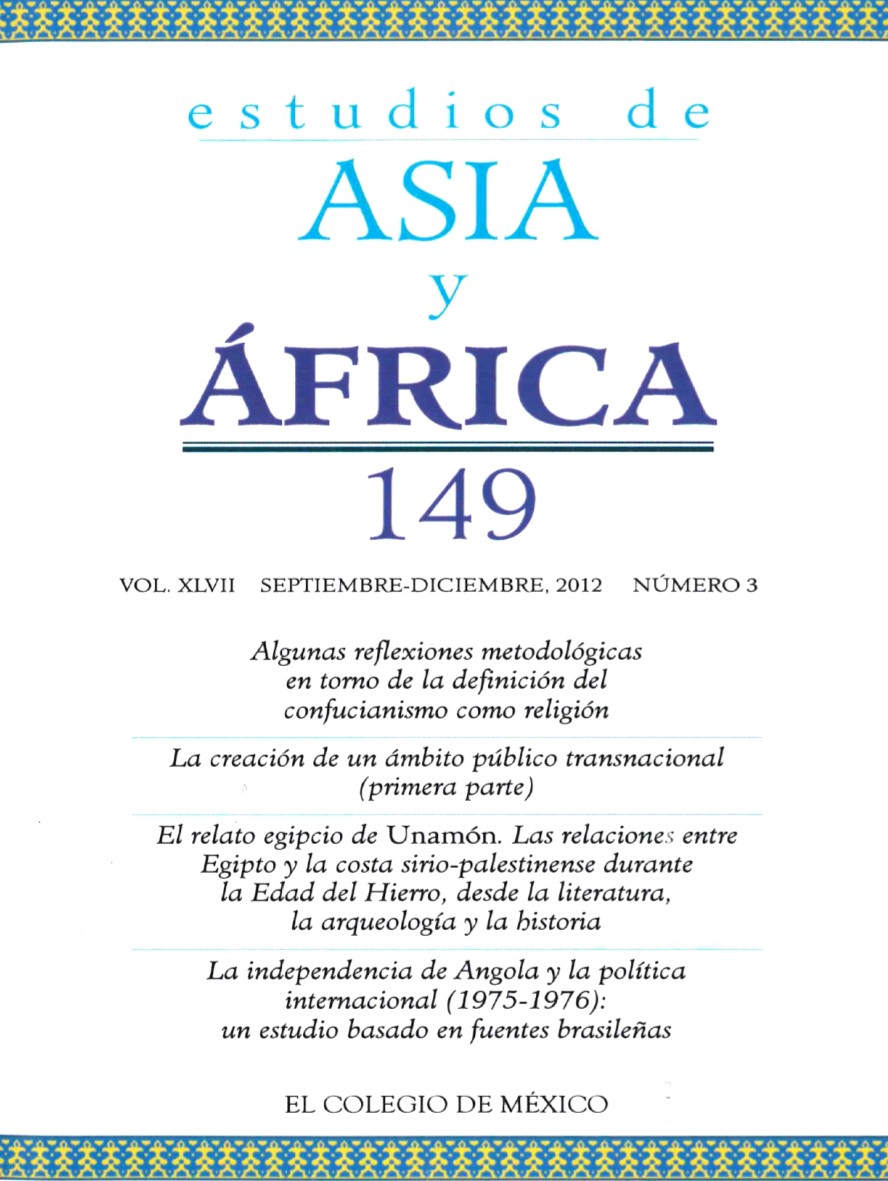Resumen
En el presente artículo se reflexiona sobre los problemas metodológicos que se enfrentan al definir el confucianismo como religión, considerando el giro pragmático ocurrido en los ámbitos académicos de los estudios de la religión. En el escrito también se analiza la relevancia de la controversia sobre la religiosidad confuciana en los espacios académicos chinos. Se argumenta que la epistemología del asunto de la religiosidad confuciana no compete tanto a la “esencia” per se del confucianismo como a la integridad de su conceptualización desde la categoría moderna de religión. Se sugiere la adopción de una actitud metodológica firme al “transculturalizar” el concepto occidental de religión en el contexto chino, a la vez que se incluye una crítica intercultural de la etimología del término religión (zongjiao) y una crítica paradigmática de los vocablos chinos rujia, rujiao y ruxue, los cuales se traducen como “confucianismo” en lenguas occidentales.
Referencias
Beyer, Peter, “The Modern Construction of Religions in the Context of World Society: A Contested Category in Light of Modern Chinese History”, documento presentado en la conferencia Chinese and Comparative Historiography and Historical Culture, Wolfenbuttel, Alemania, 1999. [www.aix1.uottawa.ca/~pbeyer/chinese%20history.htm.]
Fitzgerald, Timothy, “A Critique of ‘Religion’ as a Cross-Cultural Category”, Method & Theory in the Study of Religion, vol. 9, núm. 2, 1997, pp. 91-110.
He, Guanghu, “Zhongguo Wenhua de Gen yu Hua: Tan Ruxue de Fanben yu Kaixin”, Yuandao, núm. 2, 1995.
Jensen, Lionel, Manufacturing Confucianism: Chinese Traditions and Universal Civilization, Durham-Londres, Duke University Press, 1997.
Jochim, Christian, Chinese Religions: A Cultural Perspective, Englewood Cliffs, Nueva Jersey, Prentice-Hall, Inc., 1986.
McCutcheon, Russell T., “The Category ‘Religion’ in Recent Publications: A Critical Survey”, Numen, núm. 42, 1995, pp. 284-309.
Paper, Jordan, The Spirits are Drunk: Comparative Approaches to Chinese Religion, Albany, State University of New York Press, 1995.
Platvoet, Jan, “The Definers Defined: Traditions in the Definition of Religion”, Method & Theory in the Study of Religion, vol. 2, núm. 2, 1990.
Platvoet, Jan G. y Arie L. Molendiji (eds.), The Pragmatics of Defining Religion: Contexts, Concepts, and Contests, Leiden-Boston, E. J. Brill, 1999.
Ren, Jiyu, “Lun Rujiao de Xingcheng” [En la formación de la religión confuciana], en Ren Jiyu (ed.), Rujiao Wenti Zhenglun Ji [Colecciones del debate en la religión confuciana], Beijing, Zongjiao Wenhua Chubanshe, 2000.
Robinson, Richard, Definition, Oxford, Oxford University Press, 1968.
Saler, Benson, Conceptualizing Religion: Immanent Anthropologists, Transcendent Natives, and Unbounded Categories, Nueva York-Oxford, Berghahn Books, 2000.
Shorter Oxford English Dictionary: On Historical Principles, Oxford, The Clarendon Press, 1933.
Smith, W. C., The Meaning and End of Religion: A New Approach to the Religious Traditions of Mankind, Nueva York, The Macmillan Company, 1962.
Snoek, J. A. M., Initiation: A Methodological Approach to the Application of Classification and Definition Theory in the Study of Rituals, Pijnacker, Dutch Efficiency Bureau, 1987.
Southwold, Martin, “Buddhism and the Definition of Religion”, Man, vol. 13, núm. 3, 1978, p. 367.
Spiro, Melford, “Religion: Problems of Definition and Explanation”, en Michael Banton (ed.), Anthropological Approaches to the Study of Religion, Londres, Tavistock Publications, 1966.
Yang, C. K., “The Functional Relationship between Confucian Thought and Chinese Religion”, en John K. Fairbank (ed.), Chinese Thought and Institutions, Chicago, University of Chicago Press, 1957.
Yang, C. K., Religion in Chinese Society: A Study of Contemporary Social Functions of Religion and Some of Their Historical Factors, Berkeley-Los Ángeles, University of California Press, 1961.
Zadeh, L. A., “Fuzzy Sets”, Information and Control, núm. 8, 1965, pp. 338-353.
Zongjiao Dacidian [Diccionario Integral de la Religión], Shanghai, Shanghai Cishu Chubanshe, 1998.
Esta obra está bajo una licencia internacional Creative Commons Atribución-NoComercial-SinDerivadas 4.0.
Derechos de autor 2022 Estudios de Asia y África



